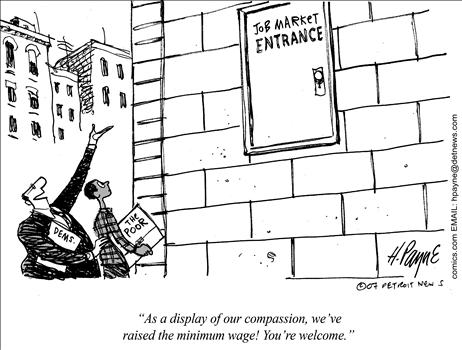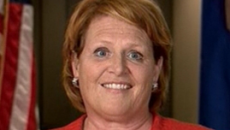With Call For Minimum Wage Hike Obama Is Putting The Screws To Young Americans Again

Obamacare is turning out to be a swift, hard kick in the pants for America’s youth (a demographic that voted overwhelmingly to re-elect the President). Now, with his call during his State of the Union address for an increase in the minimum wage, President Obama is set to put the screws to younger Americans again.
Professor Mark Perry shows that, with the minimum wage increases that took place between 2007 and 2009, unemployment among young Americans increased:

The jobless rate for 16-19 year olds increased by ten percentage points, from about 16% in 2007 to more than 26% in 2009. Of course, the overall US jobless rate was increasing at the same time, from about 5% to 10%. Therefore, the graph attempts to better isolate the effects of the minimum wage increases between 2007 and 2009 on teenagers by plotting the difference between the teenage jobless rate and the overall jobless rate, i.e. “excess teen unemployment,” and the minimum wage.
During the 2002-2007 period when the minimum wage was $5.15 per hour, teenage unemployment exceeded the national jobless rate by about 11% on average. Each of the three minimum wage increases was accompanied by a 2 percentage point increase in the amount that the teenage jobless rate exceeded the overall rate, from 11 to 13% after the 2007 increase from $5.15 to $5.85 per hour, from 13% to 15% following the second hike to $6.55 per hour, and from 15% to 17% following the last increase to $7.25. The 17.5% “excess teen unemployment” in October 2009 was the highest on record, going back to at least 1972, and was almost 5 percent higher than the peak teen jobless rate gap following the last recession (12.7% in June 2003).
When we increase the minimum wage, far from helping low-wage workers, we’re increasing the cost of employing them. In essence, the minimum wage is a tax on low-wage, unskilled labor.
“Raising the minimum wage by a substantial amount would price working poor people out of the job market,” wrote the New York Times in a 1987 editorial. They were right back then (they aren’t right now).
But, really, there just aren’t that many people making the minimum wage. According to the BLS, in 2012 there were just 3.8 million US workers making at or below the minimum wage. That’s out of 142.4 million total US workers. That means just 2.6% of US workers are making the minimum wage.
And of that total, half were under the age of 25 again according to the BLS (workers under 25 make up just 20% of total US hourly workers).
So if we raise the minimum wage, we’re not going to help the economy so much as create a bigger barrier between young, low-skill workers and gaining experience in entry-level jobs.
That doesn’t help. That hurts.







